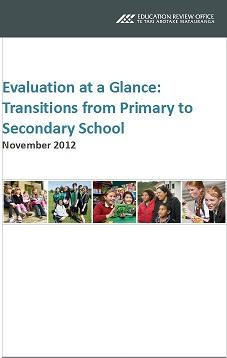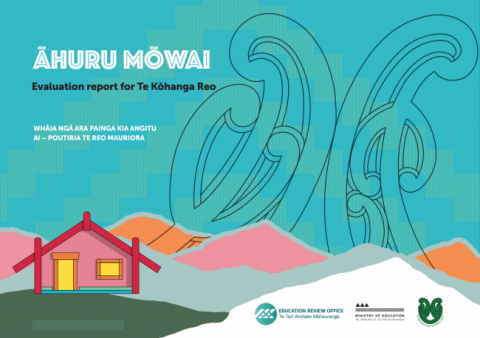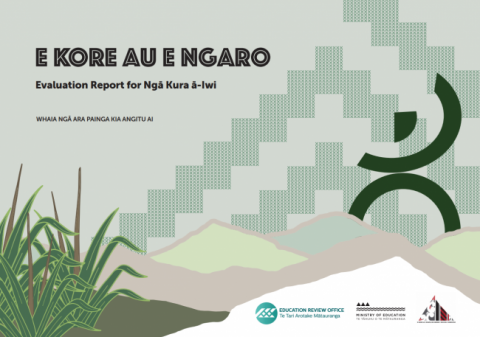Evaluation at a Glance: Transitions from Primary to Secondary School
Published: 10 Dec 2012
This national report combines current research with findings from recent ERO reports about students' transitions between and through schools. The report discusses the important pastoral care and learning support processes needed for successful transitions.
- Audience:
- Schools
- Content type:
- Research
- Topics:
- Evaluation
- Pastoral care
- Education transitions
- Vulnerable learners
- Diversity
- Community




